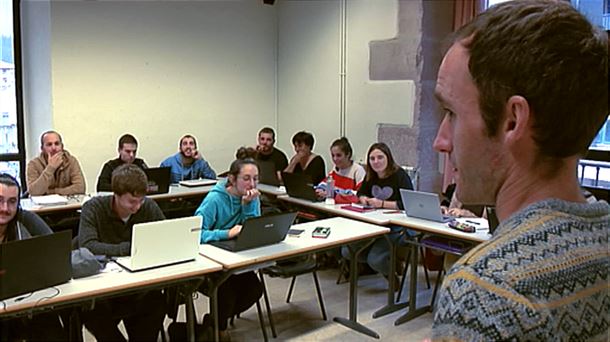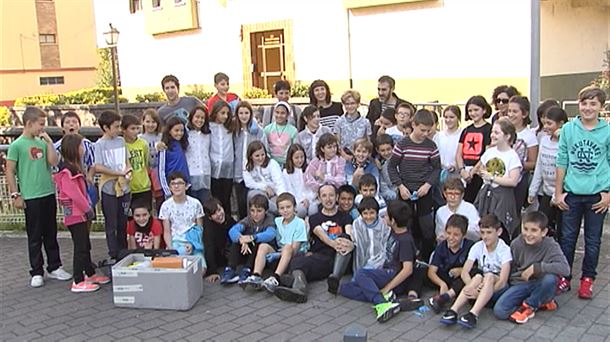Responsible research and innovation
2018/11/30 Rosina Malagrida - IrsiCaixako Osasunaren arloko Living Lab-aren arduraduna | Andoni Eizagirre - Mondragon Unibertsitateko ikertzailea Iturria: Elhuyar aldizkaria
This fall, Elhuyar has organized a conference on Open Science and RRI in which we have gathered the reflections of two researchers. They have identified the steps necessary to advance in this way of understanding science.

First steps to improve the social influence of science
Rosina Malagrida
Head of the Living Lab of Health of IrsiCaixa
We have all realized that in Europe we are not able to innovate from scientific advances and say that we live a “European paradox”. To respond to this serious problem, European Member States and the EU have launched a series of policy initiatives that do not fit their priorities.
One of these eu-driven policies was initially called Responsible Research and Innovation (RRI) and later associated with the concept of Open Science and Open Innovation. One of the measures that drive these initiatives is to share responsibility in decision making in terms of research and innovation with a broad set of social agents. The identification of these agents must take into account scientists from different disciplines, policy-makers, and representatives of civil society organizations and the educational community and industry. In some experiences it has been proven that dedicating more time to this type of interviews can contribute improvements in the governance of research and innovation, which can contribute to improving its social impact and to solving our paradox.
On 10 and 17 October I liked to participate in two sessions of reflection on Open Science and RRI by Elhuyar and within the Zientziakide project*. Participants agreed on the idea that we have to move forward on the road to this transformative change and drew up a list of recommendations. In addition, the list will soon be sent to the Basque Government. The recommendations are still being agreed but, among other things, it would highlight the proposal for a change in the way researchers are evaluated and the need to fund R&D&i projects focused on social challenges to promote a more systemic and less shared work. The process of paradigm shift in the way of investigating has only begun.
What is being a responsible science and scientist?
Andoni Eizagirre Eizagirre
Researcher of Mondragon Unibertsitatea
Let's think about dementias and, specifically, Alzheimer's disease. Or sustainable electromobility, food, the protection of the marine environment and many other complex challenges. Imagine a genetic edition and nanochips to manipulate the brain. To foster knowledge and innovation, the responsibility for integrating agents, points of view and issues is becoming more and more frequent. And it is essential to promote cooperation between knowledge, respect for points of view and co-responsibility; it is essential to imagine in advance future, desired, harmful, marginalized, if you want to carry out research, development and innovation in a responsible way.
One of the objectives and ideals of science has always been to act with responsibility, of course. However, over time, the ways to understand what it is to be responsible science and scientist are changing. In the workshops of the Zientziakide project* we have found that scientists have many views on responsibility; scientific freedom, motivation for research, ways to understand responsibility are not unique. However, participants have valued RRI (Research and Responsible Innovation) as an option in response to major challenges in general.
However, as confirmed in the workshops, the trajectory of the RRI - and other similar approaches - is conditioned by the place and weight they have in the priorities of the research and innovation policies (strategic programs, lines of financing, systems of evaluation, incentives), the training and training that we receive in the scientific education and in the itinerary of research, the understanding of the science and the relations of the science with the society, the definition of the topic, the design of the experimentation procedures and the quality. Its combination explains what we mean by responsible research.
*The Zientziakide project was carried out in collaboration with: Department of Education of the Basque Government, Diputación Foral de Gipuzkoa, Fundación Kutxa, Fundación Española para la Ciencia y la Tecnología (FECYT) and Ministerio de Ciencia, Innovación y Universidades del Gobierno español.

Gai honi buruzko eduki gehiago
Elhuyarrek garatutako teknologia





